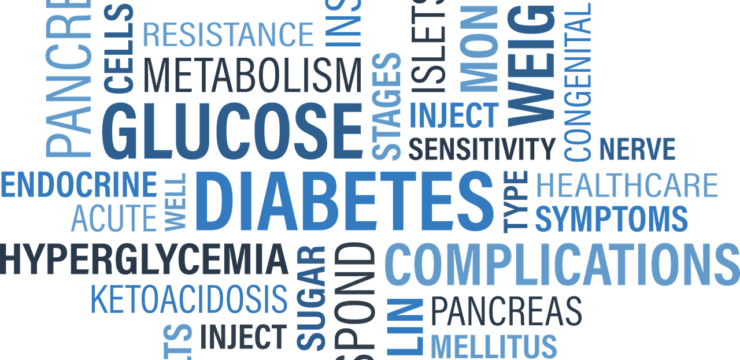Patients’ dietary patterns are important triggers or modulators when it comes to cardiometabolic disease risk assessment. It has been stated that cardiovascular disease is the…

Metabolic Syndrome: Is a group of conditions that include increased blood pressure, high blood sugar, excess body fat around the waist, and abnormal cholesterol or triglyceride levels. These occur together, increasing an individual’s risk of heart disease, stroke and diabetes. Having just one of these conditions doesn’t mean an individual has metabolic syndrome. However, any of these conditions increase the risk of serious disease. Having more than one of these might increase the risk even more. Most of the disorders associated with metabolic syndrome have no symptoms. However, a large waist circumference is a visible sign. If an individual’s blood sugar is very high, they might have signs and symptoms of diabetes, which include increased thirst, urination, fatigue, and blurred vision. This syndrome is closely linked to overweight/obesity and inactivity. It’s also linked to a condition called insulin resistance. Normally, the digestive system breaks down foods into sugar (glucose). Insulin is a hormone made by the pancreas that helps sugar enter the cells to be used as fuel. People with insulin resistance, their cells don’t respond normally to insulin, and glucose can’t enter the cells as easily. As a result, glucose levels in the blood rise despite the body’s attempt to control the glucose by churning out more and more insulin. In some cases, metabolic syndromes can be caused by inflammation. Health coaches along with other functional practitioners can work with patients to decrease inflammation in the body.

Patients’ dietary patterns are important triggers or modulators when it comes to cardiometabolic disease risk assessment. It has been stated that cardiovascular disease is the…

The “pill for every ill†therapeutic approach is not enough to ensure its health improvement. In fact, ACC/AHA clinical guidelines are more interested in the…

We have talked about the comorbidities of high visceral fat and insulin resistance; well, dyslipidemia is one of them. What you need to know about…

Metabolic syndrome (MetS) is a cluster of signs and symptoms that are found in many patients. The standard of care determines that MetS diagnose should…

The obesity pandemic has put the world population to the test. Once considered an esthetic condition now is a significant risk factor for insulin resistance.…

Several herbal species to treat the underlying causes of cardiometabolic disturbances with effective results have been used widely. Accordingly, cinnamon Verum (family Lauraceae) has been…

Clinical studies between body composition and chronic conditions have been made, mainly focusing on adipose tissue content and metabolic derangement. Nevertheless, a new scope has…

Hintonia Latiflora (family Rubiaceae) is a bark of a Central American plant. In Mexico, Hintonia Latiflora is commonly known as “copalchis†and is extensively applied…

Monitoring and control of glucose levels are imperative to the treatment plan of metabolic diseases. Conditions like Type 2 Diabetes Mellitus and metabolic syndrome are…
Choose A Doctor Who Cares Teaming up with your care Doctor Have you ever been to a Doctor’s appointment and felt like you are not…

For an individual who is experiencing insulin resistance, the body’s cells have a lack of ability to respond to the action of insulin. Insulin is a hormone that removes glucose from the body and places it into our cells. Type 2 diabetes in certain families has been linked to a genetic background but we are finding that environmental factors truly unmask the genes.Â
To test genotypes, we use DNA Health from DNA Life. This report shows us the genetic makeup an individual has as well as their risk factors for certain health conditions.

Fructose is one of the main components of added sugar. It is a simple type of sugar that makes up about 50 percent of table…

One of the best ways to reduce your chances of developing type 2 diabetes, or slow down the progression/reverse a diagnosis is to start with reducing inflammation. This is done by starting in the kitchen. Evaluate diet first. We should be eating clean locally sourced organic foods to fuel our cells and alter our genetic expression in a positive way. By eating pizza and chips we are adding fuel to the inflammation fire and throwing constant reactors at our genes, altering their expression to be pro-inflammatory rather than anti-inflammatory.

Detailed lab testing is becoming more and more essential as integrative medicine is on the rise. Detailed lab testing goes more in-depth than the traditional…